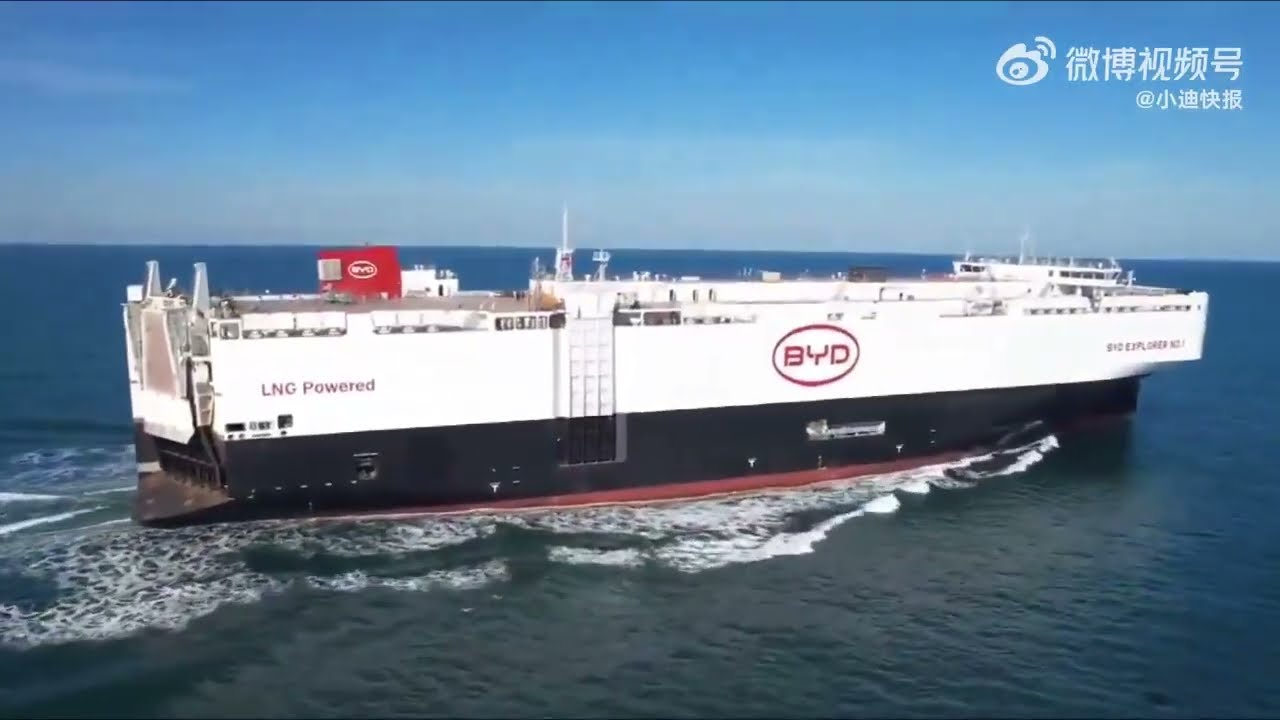In January, BYD launched its first cargo ship exclusively for vehicle exports and plans to add seven more car carriers to its fleet over the next two years to further increase its global sales and exports.
The first cargo ship built for BYD can carry up to 7,000 vehicles and was the first car carrier built in a Chinese shipyard to be used exclusively for exporting local vehicles overseas. It was built by CIMC Raffles, while construction of the next two carriers has recently begun in Guangzhou. They are being built by CSSC Offshore & Marine Engineering and will have a capacity of 7,000 vehicles each.
China became the world's largest exporter of cars last year, taking the crown from Japan. BYD believes it can cut transport costs by owning its own vessels rather than paying exorbitant charter fees for car carriers, reports Nikkei Asia.
“BYD is going to deploy seven car carriers in the coming two years to ease the shortage of shipping capacity for automobile exports,” founder and chairman Wang Chuanfu said earlier this year.
Chinese car manufacturers are in desperate need of new vessels to meet the growing demand. As of November last year, Chinese shipping companies owned just 40 car carriers with a total capacity of around 110,000 vehicles. By comparison, Japanese shipping companies own car carriers with a total capacity of 1.6 million vehicles. Even Norway has a capacity of 930,000.
It is not just BYD that is looking to secure more shipping capacity. State-owned SAIC, through its logistics company SAIC Anji Logistics, plans to secure 14 car carriers over the next three years, some with a capacity of 9,000 vehicles. Chinese shipowners had 37 car carriers on order in November, with a total capacity of 290,000 vehicles.
The rush to secure cargo ships is similar to what happened in Japan in the 1970s. As the country's exports soared from 1.1 million units in 1970 to 6 million units in 1980, local companies had to build new and larger car carriers to keep up.
Source: Nikkei Asia

